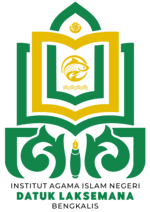Peranan Pendidikan Islam dalam Merekontruksi Indentitas Muslim di Belanda
DOI:
https://doi.org/10.56633/jkp.v18i1.342Keywords:
Pendidikan Islam, Rekonstruksi, Identitas Muslim, BelandaAbstract
Keinginan para imigran Muslim di Belanda untuk mengenyam pendidikan berbasis budaya dan agama dapat dipahami sebagai upaya untuk melindungi budaya dan identitas mereka sebagai Muslim. Upaya mereka untuk mendirikan madrasah di negeri ini, meskipun dijamin oleh Undang-Undang Dasar Negara, namun pada tataran praktis seringkali sulit diwujudkan. Reaksi dari luar komunitas Muslim dalam masyarakat Belanda seringkali negatif terhadap pendidikan Islam. Pendapat yang saling bertentangan itu kritis dan menganggap pendidikan Islam di Belanda tidak diinginkan karena dapat memperlambat proses integrasi ke dalam masyarakat Belanda. Tulisan ini mengeksplorasi pendidikan Islam di Belanda dari perspektif sejarah, menganalisis faktor-faktor yang menyebabkan realisasinya oleh imigran Muslim di negara ini, dan membahas peran pendidikan Islam dalam masyarakat Belanda.References
Berglund, Jenny “Islamic Education in Sweden” in Ednan Aslan / Margaret Rausch (eds.), Islamic Education in Secular Societies, Frankfurt am Main: Peter Lang, 2013.
Berglund, Jenny, Publicly Funded Islamic Education in Europe and the United States, The Brookings Project on U.S. Relations with the Islamic World: Center for Middle East Policy.2015
De Koning, Martijn , “Netherlands”, in Jørgen S. Nielsen (Editor-in-Chief),
Yearbook of Muslims in Europe Volume 1, Leiden: Brill, 2014.
Driessen, Geert W. J. M. & Jeff J. Bezemer “Background and Achievement Levels of Islamic Schools in the Netherlands: Are The Reservations Justified?”, Race Ethnicity and Education, 1999.
Driessen, Geert & Pim Valkenberg, “Islamic Schools in the Netherlands: Compromising between Identity and Quality?”, British Journal of Religious Education, 2000.
Driessen, Geert & Michael S. Merry, “Islamic Schools in the Netherlands: Expansion or Marginalization?”, Interchange, 2006.
Merry, M. S. 2005. “Advocacy and Involvement: The Role of Parents in Western Islamic Schools.” Religious Education, 2005.
Merry, M. S., and G. Driessen. 2005. “Islamic Schools in Three Western Countries: Policy and Procedure.” Comparative Education, 2005
Merry, M. S., and G. Driessen. “On the Right Track? Islamic Schools in the Netherlands after an Era of Turmoil. 2016
Muslih, Pendidikan Islam di Negeri Belanda: Sejarah, Tantangan dan Prospek, Semarang: Southeast Asian Publishing.
Merry, M. S. “Advocacy and Involvement: The Role of Parents in Western Islamic Schools.” Religious Education, 2005.
Merry, M. S., and G. Driessen. “Islamic Schools in Three Western Countries: Policy and Procedure.” Comparative Education, 2005.
Merry, M. S., and G. Driessen. 2016. “On the Right Track? Islamic Schools in the Netherlands after an Era of Turmoil, 2016.
Sunier, T. 2005. “Constructing Islam: Places of Worship and the Politics of Space in the Netherlands.” Journal of Contemporary European Studies 3 (3): 317–334. doi:10.1080/14782800500378409.
Ter Avest, K. H., and M. Rietveld-van Wingerden. 2016. “Half A Century of Islamic Education in Dutch Schools.” British Journal of Religious Education. doi:10.1080/01416200.2015.1128391.
Downloads
Published
Issue
Section
License
Authors who publish with this journal agree to the following terms:
- Authors retain copyright and grant the journal right of first publication with the work simultaneously licensed under a Creative Commons Attribution-ShareAlike 4.0 International License. that allows others to share the work with an acknowledgement of the work's authorship and initial publication in this journal.
- Authors are able to enter into separate, additional contractual arrangements for the non-exclusive distribution of the journal's published version of the work (e.g., post it to an institutional repository or publish it in a book), with an acknowledgement of its initial publication in this journal.
- Authors are permitted and encouraged to post their work online (e.g., in institutional repositories or on their website) prior to and during the submission process, as it can lead to productive exchanges, as well as earlier and greater citation of published work (See The Effect of Open Access).






